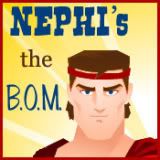
There is a two-letter word that perhaps has more
meanings than any other two-letter word...
that word is up.
~ It's easy to understand up meaning toward the sky or at the top of the list, but when we awaken in the morning why do we wake up?
~ At a meeting, why does a topic come up?
~ Why do we speak up, and why are the officers up for election?
~ Why is it up to the secretary to write up a report?
~ We call up our friends.
~ We brighten up a room when we polish up the silver.
~ We warm up the leftovers and clean up the kitchen.
~ We lock up the house, and some guys fix up the old car.
~ People stir up trouble, and line up for tickets.
~ They work up an appetite, and think up excuses.
~ To be dressed is one thing, but to be dressed up is special.
~ And this up is confusing: A drain must be opened up because it is stopped up.
~ We open up a store in the morning, but we close it up at night.
~ We seem to be pretty mixed up about up.
~ To be knowledgeable about the proper uses of up, look the word up in the dictionary. In a desk-sized one, it takes up almost 1/4 of the page, and can add up to about 30 definitions. If you are up to it, you might try building up a list of the many ways up is used. It will be up to a hundred, more.
~ When it threatens to rain. we say it's clouding up. When it rains, it wets up the earth. When the sun comes out we say it is clearing up. When it doesn't rain at all, things dry up.
~ One could go on and on, but my time is up, so I will shut up and wrap it up...
Oh, one more thing... What is the first thing you do in the morning, and the last thing you do at night... u p.
How do non-native speakers ever learn English?
1 week ago









2 comments:
that is so funny! It is so true!
i have no idea how they do it. i tutor my little sister, and i have come to realize that the mistakes they make, make more since then the correct way! i am just glad that i am a native!
Post a Comment